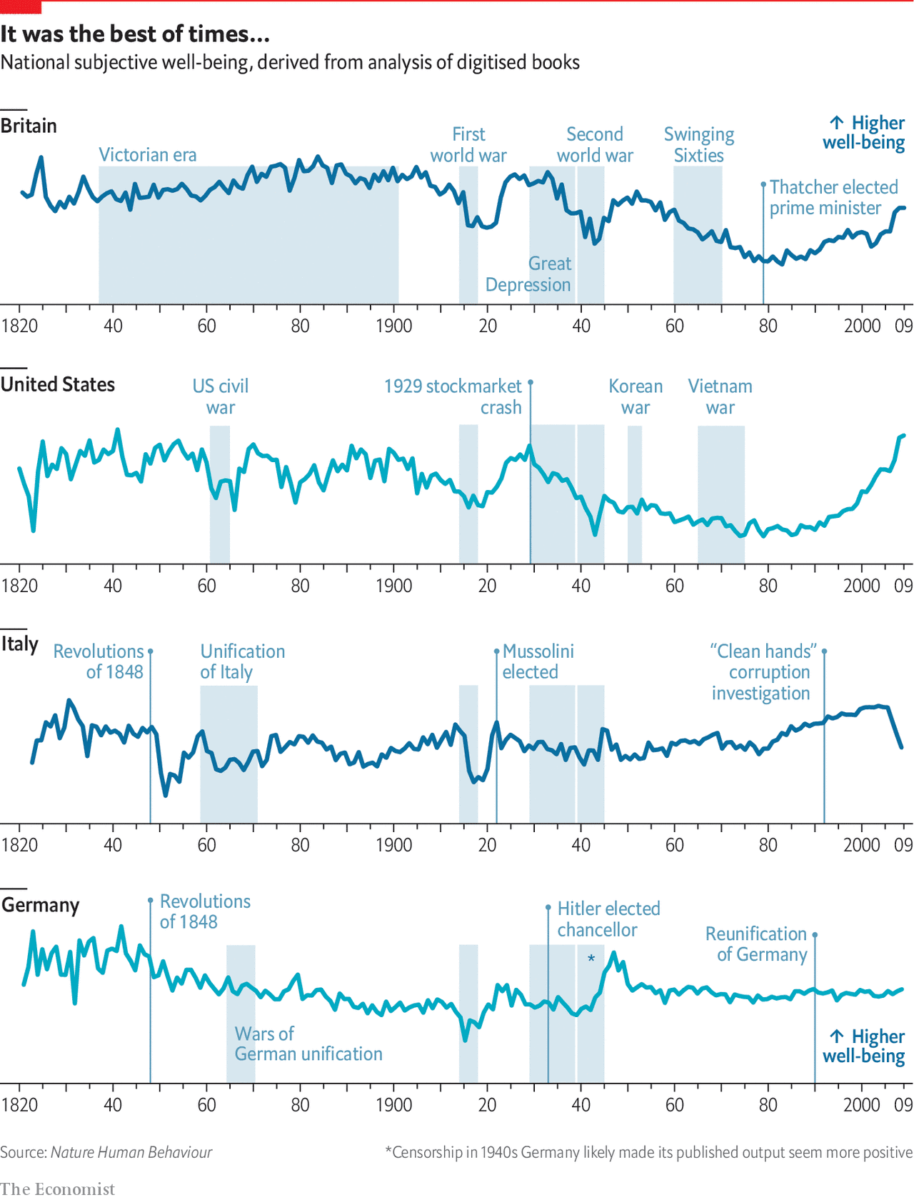Can money buy happiness? Two centuries’ worth of books suggest it can

Source: The Economist
This is a fascinating look at a topic we have discussed many times before: What exactly is happiness, and how does money relate to that?
The issue with many attempts to measure happiness or well-being is that too often, they tend to rely on problematic surveys. Asking people questions tells you what they believe to be true — not what is actually true. This is a nuanced but crucial distinction.
Enter Daniel Sgroi (University of Warwick) and Eugenio Proto (University of Glasgow), both in Britain. They have attempted to construct the “National Valence Index” — a more objective measure of happiness and life satisfaction:
“It is difficult to estimate how happy people were during previous centuries. Here we show that a method based on the quantitative analysis of natural language published over the past 200 years captures reliable patterns in historical subjective wellbeing. Using sentiment analysis on the basis of psychological valence norms, we compute a national valence index for the United Kingdom, the United States, Germany and Italy, indicating relative happiness in response to national and international wars and in comparison to historical trends in longevity and gross domestic product.”
That is a rather interesting approach.
Here is how The Economist describes the conclusion of their research regarding the relationship between money and happiness:
“As to wealth, the steady progress of the Victorian period matches a steady increase in British happiness, as did the economic boom of the 1920s, which also lifted American spirits. Both countries’ spirits fell again in the Great Depression that followed the stock market crash of 1929.. After the lows of the 1970s, though, happiness in both has been on the rise ever since.
Overall, then . . happiness does vary with GDP.. But the effect of health and life expectancy, which does not have the episodic quality of booms, busts and armed conflict, is larger, even when the tendency of wealth to improve health is taken into account.”
That seems like a rational conclusion regarding happiness: Money can buy you some happiness, but not as much as being healthy over your lifetime.
Previously:
A Modest Defense of Money & Materialism (July 25, 2019)
Cornell Psychology Professor Tom Gilovich on Happiness and the Hot Hand (January 27, 2018)
Yale Professor Robert Shiller on Narrative Economics (October 5, 2019)
The Problem with Retail Surveys (Multiple dates)
A Masterclass in Business: Money Philosophy (August 2, 2019)
Sources:
Historical analysis of national subjective wellbeing using millions of digitized books
By Thomas T. Hills, Eugenio Proto, Daniel Sgroi & Chanuki Illushka Seresinhe
Nature Human Behaviour (2019).
https://www.nature.com/articles/s41562-019-0750-z
Can money buy happiness? Two centuries’ worth of books suggest it can.
The Economist, October 16, 2019

